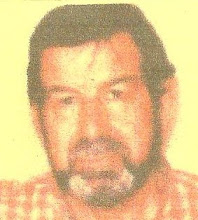By Mahmoud S. Audi
The core theme of Sen. Obama’s campaign for the nomination to run for President of the United States is “Change.” He has been repeating, nearly daily, that without changing the way the government in Washington runs, and changing the politicians who have been in Washington for a long time (in his estimate, more than six years), nothing will change. And he is the only presidential candidate, he claims, who should be trusted with the mission to affect the desired change: change the way the government is run, change the way we treat other countries and other peoples of the world, and the way we get into wars. He seems to believe that he has a monopoly on “Change,” and probably wishes he could protect the word by copyrights registration.
Observing Obama and reading his memoir, I came to believe that he is another politician with less than six years experience in the United States Senate. A true proponent of change would be inclusive in treating the different peoples of the world, and would not change the fairness principle as a result of the influence of lobbies.
A number of tests could be run to assess the seriousness and the credibility of Obama in the area of changing our foreign policy. I chose one test that is of most interest to me, and to many people of Earth; unfortunately, not to many of us in the United States. The lobbies stifle the undesired truths, and they do not allow us to face the daily trials and tribulations of suffering people. That problem is the conflict between the Palestinians and the Israelis.
In these days, the Jewish community and other Americans, are celebrating the 60th birthday of Israel, and claim that its creation “… is one of the biggest success stories of modern times.”
At the same time the victims of the creation of Israel, the Palestinians, are mourning the Naqbah (the catastrophe) that befell on them when Israel was created. For sixty years the Palestinians have been suffering from the absence of justice in the Holy Land.
I know that it is in the tradition of Judaism, Christianity, and Islam (along with other religion) to help the poor and protect the weak. But our government in its lack of wisdom, and because of the influence of the Israeli Lobby in Washington, chose to stand with the militarily mighty and tread on the back of the weak. The war on the Palestinians has been going on for more than a century; the war on Iraq is still young. So, logically, Obama, the self proclaimed prophet of change, should, in addition to ending the war on Iraq, should also work on bringing a just resolution of the Palestinian-Israeli problem. Is there a sign that he might do that if he becomes President? No, but there are signs that he would be worse than Bush.
On Wednesday, April 16, just before the 08 Pennsylvania Primary, Obama met with the Philadelphia area Jewish leaders. I read an account of the meeting in the Philadelphia Inquirer. In that meeting he said everything the leaders wanted to hear: a typical politician—NOT AN AGENT OF CHANGE.
He said that his links with the Jewish community predate) his entry into politics (he was perhaps referring to the Jewish activist who gave him his first community organizer job), and would extend beyond his campaign. At the United Nations he would continue to veto any resolution, which Israel would not like, and he is for the security of Israel, but against the right of return of the Palestinians to their homes. He also said that he disagrees with former President Jimmy Carter who is pushing hard for a solution of the problem. I wish he said something positive to the peace loving peoples of the world and to the Palestinians who are longing for peace in Israel and Palestine.
He failed the test. He is just another politician, with little experience, and who puts a lot of work to compose his speeches.
Monday, May 5, 2008
Subscribe to:
Post Comments (Atom)

1 comment:
Your entries keep getting better and better Dad! This is one of my fav so far even though it's tough to choose :)
Post a Comment